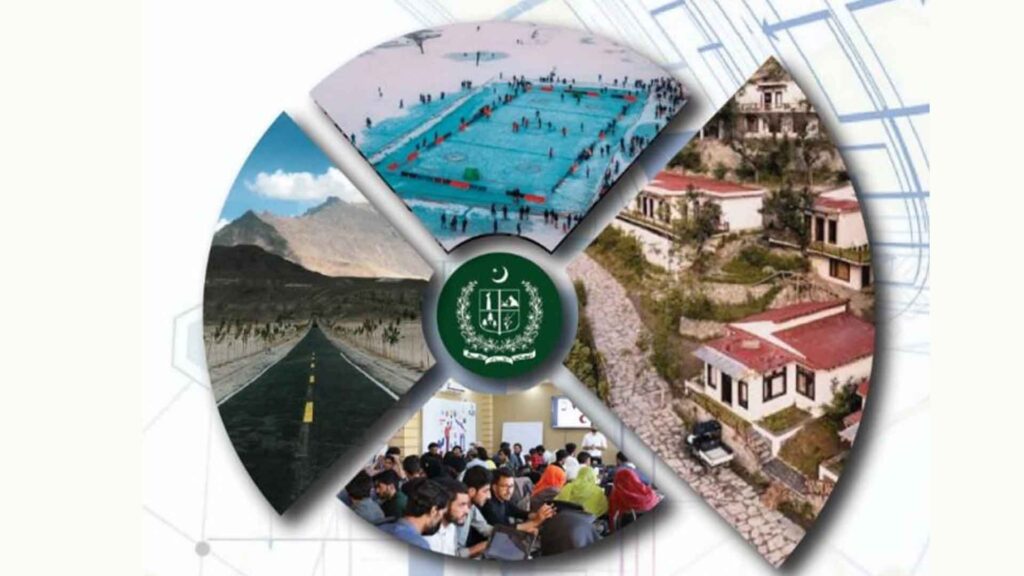- Web Desk
- Yesterday
5-year development plan: G-B aims for comprehensive transformation
-

- Tanveer Abbas
- Mar 16, 2024

GILGIT: Gilgit-Baltistan has unveiled a comprehensive 5-year development plan (2024-2029) alongside an investment plan that focuses on a transformative agenda to ensure sustainable regional growth.
These initiatives were announced during a consultative session organised by the Department of Planning and Development at the Ramada Hotel, Gilgit.
According to the plan, by 2029, Gilgit-Baltistan aspires to undergo a comprehensive transformation into a sustainable region, guided by strategic initiatives aimed at poverty reduction, fostering employment opportunities, harnessing regional and global prospects, and implementing substantive reforms within the healthcare and education sectors.
The plan highlights that transformation is underpinned by addressing pressing concerns such as food security, facilitating access to sustainable green energy sources, advocating for responsible utilisation of natural resources, fostering technological innovation, promoting gender equality, and prioritising measures to mitigate the impacts of climate change.
“The overarching objective is to effectively confront environmental challenges while advancing socio-economic development in Gilgit-Baltistan,” the report reads.
During the event, G-B Chief Minister Haji Gulbar Khan also launched a monitoring and evaluation software for PSDP projects, highlighting the government’s commitment to transparency and efficiency in the implementation of development projects.
He stressed the critical importance of the 5-year development plan for the region, noting that proper planning is essential to overcome challenges related to the limited development budget and resource allocation.
The Chief Minister emphasised that the development plan is vital not just for addressing the current resource allocation challenges but also for attracting investors to the region. Special attention, he mentioned, will be given to the underdeveloped districts, ensuring that the benefits of development are evenly distributed.
The plan aims to employ public-private partnerships, donor contributions, and private investments rather than solely relying on government funds.
A key feature of the plan includes significant projects initiated under Public-Private Partnerships (PPP), aiming to leverage private and international investments to boost the region’s economic and infrastructural development.
The Chief Minister voiced the government’s priority to facilitate equitable resource distribution, organised planning, and promoting development and construction within the region.
Acknowledging the issues arising from unorganised planning and discontinuity in policies from various governments, the Chief Minister expressed optimism that the new development plan would streamline the developmental process, ensuring the efficient use of the developmental budget and bringing its benefits to the public.
Furthermore, the plan includes strategies to make Gilgit-Baltistan a hub for tourism, exploit its vast mineral resources properly, and promote the IT sector. It also focuses on health sector improvements by training human resources to meet international standards.
Gilgit-Baltistan Assembly Speaker Nazir Ahmed Advocate expressed that the five-year social development plan formulated by the Department of Planning and Development was a crucial step for the region’s construction and development over the next five years.
He said the plan sets a strategic roadmap for the social and economic development of the region, aiming to create sustainable development opportunities by addressing the challenges faced by the area.
He further emphasised that the government of Gilgit-Baltistan encourages investment across all sectors, particularly in infrastructure development, and highlighted the importance of good governance as a critical element of this integrated strategy.
The Speaker stressed the need for sincere implementation of the five-year plan to leverage the region’s resources for public benefit effectively.
Minister of Finance Engineer Muhammad Ismail, speaking at the session, pointed out the need to reduce Gilgit-Baltistan’s dependence on federal support by utilising the region’s resources for public welfare and enhancing investment opportunities.
He identified the absence of the private sector as a major cause of unemployment, leading to an increased inclination towards government jobs.
He underscored the necessity of developing skilled human resources to face future challenges, providing facilities to the private sector to create employment opportunities, and prioritising measures to teach modern skills to the youth and facilitate self-employment.
He mentioned the need for a solid action plan to ensure the timely completion of annual development schemes, warning that failure to do so could slow down the pace of development.




